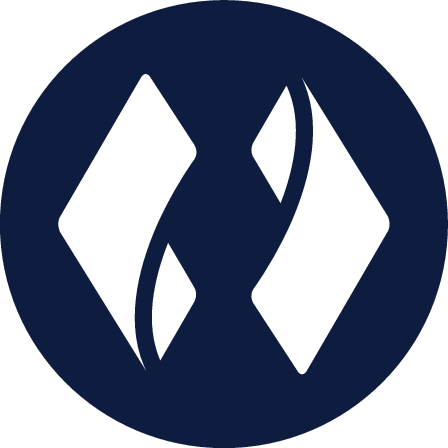DeveloperBlogs
Developing the Developer: The Role of Guilds at Codeweavers
The Codeweavers Developer’s Guild is a pillar of our professional development, company culture, and collaborative innovation as developers. Many companies boast of promoting these values amongst their employees; however, at Codeweavers, we’ve built a space where these values are embedded in our daily work and consistently cultivated. The Developer's Guild is a thriving community that empowers our developers to learn, share, and shape the future of our technology together.
One of the things we do is establish guilds for topics of interest. A guild is a self-organising, internal community that gathers colleagues around a specific area of shared technical or professional interest. Need to bring a group of people together to work on delivering some training? The Training Guild has you covered. Or porting apps so that development can be done locally on your laptop, not a development server? The Local Development guild is where you want to be.
But how about more widely? What about simply being a developer in the company?
This is what the Developer's Guild exists for.
The Developers’ Guild
Codeweavers employs around 80 developers directly, and the wider Cox Automotive Europe group many times more than that. With such a large group of developers and many more colleagues in the wider group, there needs to be somewhere that like minds can gather and discuss technicalities that matter to developers and things that relate to developers! And it’s not only developers; sessions occur in the Developer's Guild where Account Managers, Designers and other roles across the company also share things for an audience of developers.
What does the Guild do?
So, what does the Developers’ Guild at Codeweavers look like?
Each guild operates via an open Slack channel, giving all interested parties an accessible home for discussion. The Developer’s Guild functions as a central hub for developers across the company.
Those interested in a particular issue may pop up in the channel and ask any questions they have, knowing that there is an interested audience.
This central hub is not the main purpose of the Guild. It is a place to spark discussion, yes, but wider than that it serves as an introduction to new topics, techniques and procedures that are perhaps not commonly known or might be only know by some developers who wish to spread that knowledge further. Another benefit of establishing a guild is regular meetups. Whilst the Slack channel is accessible 24/7, each Friday morning there is a dedicated hour where developers can come together and actively discuss topics of interest.
This discussion takes the form of three main features: Talks, "Lean Coffee" sessions, and Focused Discussion Sessions.
Talks
Talks are exactly what they sound like. Imagine a company-based TED Talk; someone (or a small group) picks a topic they are knowledgeable on and presents a talk, usually for an hour every Friday, including questions and conversation afterwards. This can be anything from “The Future of Backend Development” to “Memory and Garbage Collection in .NET” to “Attending Agile Manchester 2024”. Such sessions also help in general improvement, such as a talk from the Customer Care Team, showing the points of friction in their processes or applications, which led to work being done to improve their day-to-day. Talks are a great way of disseminating knowledge or encouraging people to explore something new.
Lean Coffee Sessions
Away from sessions about dedicated topics, once or twice a month the guild holds a Lean Coffee session. What is a Lean Coffee session? In the words of its inventors, "Lean Coffee is a structured, but agenda-less meeting. Participants gather, build an agenda, and begin talking. Conversations are directed and productive because the agenda for the meeting was democratically generated."
This is an opportunity for developers to bring smaller discussion topics to the wider group and seek opinions - anything goes, so the topics are usually very varied; “does anyone else suffer from slow boot times on their laptop?”, “does anyone want to join me on a kata?”, “what are people’s experiences with Co-Pilot?”
Lean Coffees are a brilliant way to ensure that every discussion point someone can think of can be aired amongst the wider group. Often, we find that what starts as a timeboxed discussion point in a Lean Coffee session becomes a full talk at a later point in time. This demonstrates the power of bringing interested people together and giving them dedicated time in their week to interact with colleagues away from usual development tasks.
Discussions
Sometimes, a blend of the previous two takes place; rather than a talk being delivered about a topic, or a point being raised in a Lean Coffee, a particular topic might form the basis of a discussion for the entire session. These sessions often take place during times of change, such as the rollout of Scrum, so people can come together to discuss benefits and challenges that are envisioned or have already occurred, and how to adapt to them.
Planning
All of this is underpinned by a planning session once per month, where requests for talks go out, planned talks are scheduled, and other administrative tasks to keep the Guild running are completed. This planning is often followed by an impromptu Lean Coffee session as discussions happen naturally.
The value of the Developer’s Guild is that like-minded people can come together in a dedicated, productive space, fostering a culture of continuous learning. This ensures each developer can be heard and aids in shaping decisions in both our company but also their own personal career development.
Authored by:
Simon Clarkstone | Senior Backend Developer
Blaise Duggins | Senior Backend Developer
Craig Kempson | Senior Backend Developer
Benjamin Thirkill | Junior Frontend Developer



